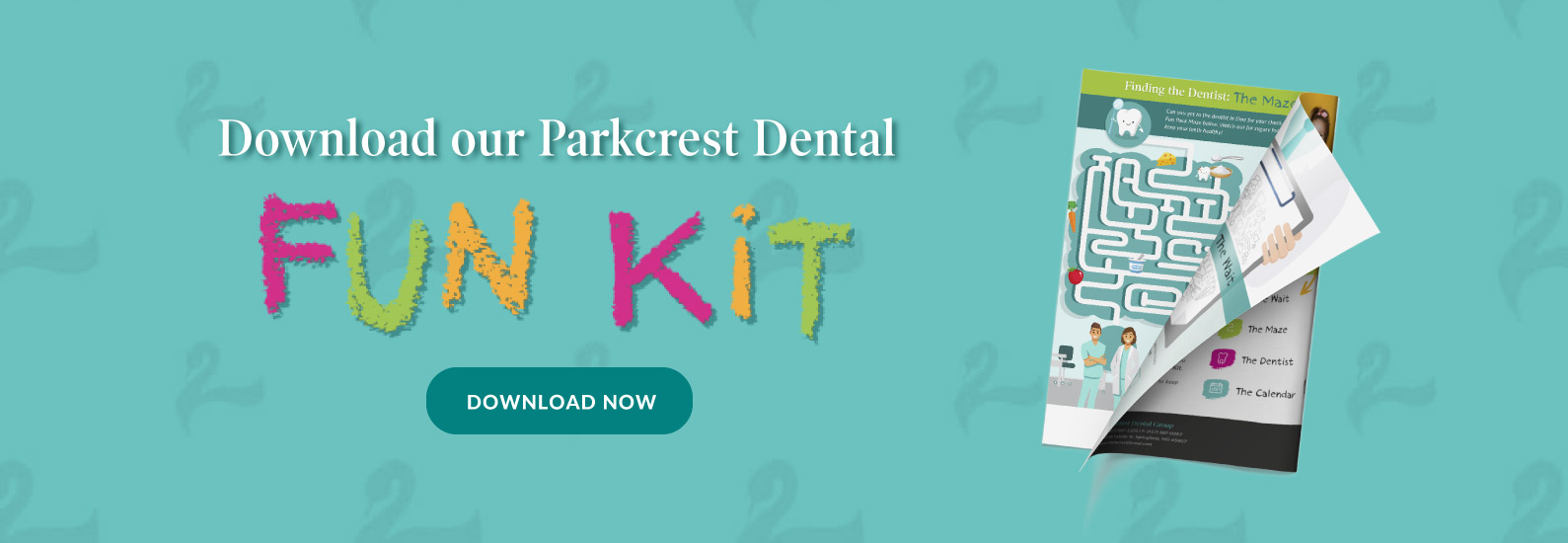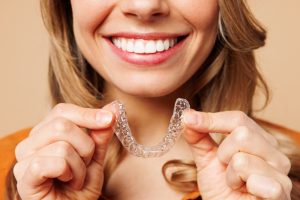Parents of a newborn or baby old enough to start teething have many decisions to make. An important one is when to start brushing your baby’s teeth. Do you start brushing as soon as they appear? Do you wait until they’ve all finally grown in? Is there such a thing as too soon? These are all questions that pediatric dentistry professionals often hear from new parents.
Parkcrest Dental Group provides pediatric dentistry and general dentistry to patients in and around Springfield, MO. We can help you by offering some advice on starting out your newest family member’s dental health routine.
Starting with the First Tooth
Most pediatric dentistry professionals will tell you to start a brushing routine as soon your baby grows their first tooth. There a few reasons for this, not least of which is to get your baby used to the sensation.
Babies are wired to learn from everything that happens around them, and making brushing their teeth commonplace is a good way to set them up early for a lifelong routine. You can even start earlier by caring for their gums with specially-designed brushes or finger appliances. Just remember, whether it’s one tooth or a mouthful, be gentle.
Related Post: Pediatric Dentistry: What To Know About Your Baby’s First Teeth (Part I)
Finding the Right Brush
Finding the right kind of brush is essential. You can’t just grab a regular toothbrush and start scrubbing away. Not only is it potentially damaging to their new teeth, it’ll also scare them. Associating brushing with fear or pain is a good way to cause bigger issues later. You’ll find plenty of specially-designed tooth and gum brushes meant for babies and small children. These come with extra soft bristles or rubber bumps.
Related Post: Pediatric Dentistry: Choosing The Right Toothbrush For Your Child
Should You Use Toothpaste?
While it’s not absolutely vital, it is a good idea to use toothpaste once your baby’s teeth start to emerge. You’ll only need a tiny amount, about the size of a grain of rice, at first. This will increase to a pea-sized amount when they’re old enough to brush their own teeth. You can easily find fluoride-free, specially-formulated toothpaste for baby or milk teeth at most pharmacies.
Related Post: Dr. Scott’s Pediatric Team’s Guide To Toothpaste
Best Brushing Methods for Babies
Like any kind of hygiene routine, your baby isn’t going to be all that cooperative. Don’t worry. You don’t need to be quite as thorough as you are with your own teeth, and it’s better to just use brushing as an opportunity to engage with them. As for the actual brushing, gently brush the teeth the same way you would your own, making sure to get both the front and the back.
Related Post: Tips To Get Your Child Excited About Brushing From Our Pediatric Dentist Expert
Let Your Baby Play with the Toothbrush
Probably the most important thing to remember is to make things fun for your baby. Let them play, let them have fun and let them associate brushing their teeth with having fun. If your baby just wants to handle and examine the toothbrush and chew on it themselves, let them. The more familiar they are with it from a young age, the easier things will be when keeping their teeth clean becomes their responsibility. Just make sure you’re there to keep an eye on them.
Ask Us More About Pediatric Dentistry
These are just a few pediatric dentistry tips about when and how to start caring for your baby’s new teeth. Remember that every baby is different, so their teeth will be too. For the best pediatric dentistry advice and treatment, speak to a professional at Parkcrest Dental Group today.





